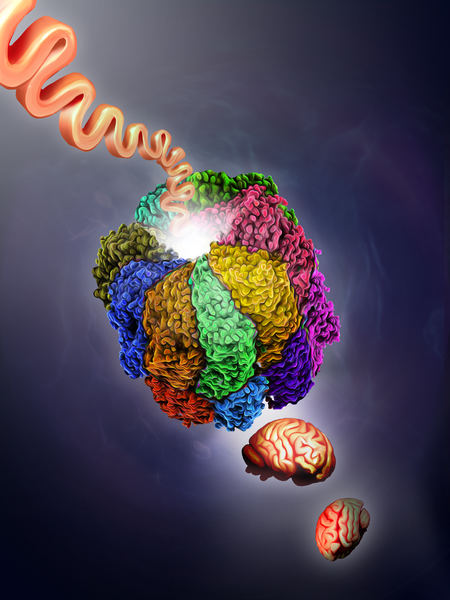TRiCopathien
– State of research and opportunity to participate in follow-up study
Brain malformations are common causes of developmental disorders and/or epilepsy. As part of a research project, it was possible to identify disease-causing variants in the TRiC complex (genes CCT1/TCP1, CCT2, CCT3, CCT4, CCT5, CCT6A, CCT7, CCT8) in 22 patients, demonstrating the TRiC complex dysfunction is an important mechanism for congenital malformations and functional disorders of the brain.
You can read the full text of the study here.
Our follow-up study focuses on investigating the clinical spectrum is more comprehensively, with the aim to gain more insights into the genotype-phenotype correlation, clinical prognosis, long-term progression and treatment strategies.
With the establishment of a registry, there is now the possibility of systematically recording patients with TRiCopathies, (TRiC-associated disorders) both at diagnosis and during follow-up.
If you, as a doctor, patient or relative, are interested in the follow-up study, the registry or would like more information on the topic, please contact us.

The TRiC protein complex is essential for the three-dimensional folding of around 10 percent of all human proteins, including important cell structure proteins such as actin and tubulin. TRiC is composed of eight different protein subunits, with each subunit encoded by its own gene. Two TRiC dimers, two times eight subunits, form the entire TRiC folding machinery. TRiC can be imagined as a barrel with a lid that can be opened and closed. Proteins passing through the barrel, are folded inside the barrel, where they are shielded from the external environment. Once they have exited the TRiC complex, this correct three-dimensional folding is essential for proteins to function - a fundamental principle of cell biology.
It is to be expected that this novel group of “TRiCopathies” can now more readily be identified in patients as the cause of a developmental disorder or epilepsy. As with all developmental defects, a therapy is still a long way off, but even these findings open up a new direction in thinking about protein folding diseases: Misfolded proteins were previously associated more with adult-onset neurodegenerative diseases such as Alzheimer's or Huntington's disease. The new findings change this and reveal the importance of correct protein folding early during embryonic development.
You can read the full text of the study here.






